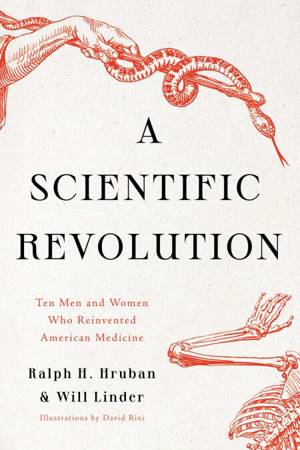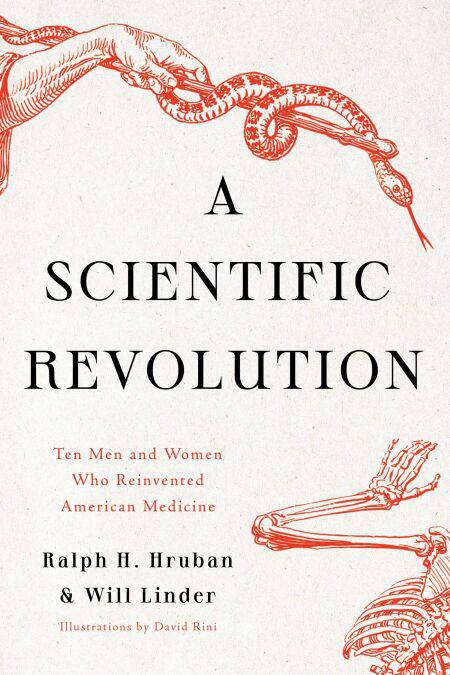
- Afhalen na 1 uur in een winkel met voorraad
- Gratis thuislevering in België vanaf € 30
- Ruim aanbod met 7 miljoen producten
- Afhalen na 1 uur in een winkel met voorraad
- Gratis thuislevering in België vanaf € 30
- Ruim aanbod met 7 miljoen producten
Zoeken
A Scientific Revolution E-BOOK
Ten Men and Women Who Reinvented American Medicine
Ralph H. Hruban, William Linder
E-book | Engels
€ 13,41
+ 13 punten
Omschrijving
A prismatic examination of the evolution of medicine, from a trade to a science, through the exemplary lives of ten men and women.
Johns Hopkins University, one of the preeminent medical schools in the nation today, has played a unique role in the history of medicine. When it first opened its doors in 1893, medicine was a rough-and-ready trade. It would soon evolve into a rigorous science. It was nothing short of a revolution.
This transition might seem inevitable from our vantage point today. In recent years, medical science has mapped the human genome, deployed robotic tools to perform delicate surgeries, and developed effective vaccines against a host of deadly pathogens. But this transformation could not have happened without the game-changing vision, talent, and dedication of a small cadre of individuals who were willing to commit body and soul to the advancement of medical science, education, and treatment.
A Scientific Revolution recounts the stories of John Shaw Billings, Max Brödel, Mary Elizabeth Garrett, William Halsted, Jesse Lazear, Dorothy Reed Mendenhall, William Osler, Helen Taussig, Vivien Thomas, and William Welch. This chorus of lives tells a compelling tale not just of their individual struggles, but how personal and societal issues went hand-in-hand with the advancement of medicine.
Johns Hopkins University, one of the preeminent medical schools in the nation today, has played a unique role in the history of medicine. When it first opened its doors in 1893, medicine was a rough-and-ready trade. It would soon evolve into a rigorous science. It was nothing short of a revolution.
This transition might seem inevitable from our vantage point today. In recent years, medical science has mapped the human genome, deployed robotic tools to perform delicate surgeries, and developed effective vaccines against a host of deadly pathogens. But this transformation could not have happened without the game-changing vision, talent, and dedication of a small cadre of individuals who were willing to commit body and soul to the advancement of medical science, education, and treatment.
A Scientific Revolution recounts the stories of John Shaw Billings, Max Brödel, Mary Elizabeth Garrett, William Halsted, Jesse Lazear, Dorothy Reed Mendenhall, William Osler, Helen Taussig, Vivien Thomas, and William Welch. This chorus of lives tells a compelling tale not just of their individual struggles, but how personal and societal issues went hand-in-hand with the advancement of medicine.
Specificaties
Betrokkenen
- Auteur(s):
- Uitgeverij:
Inhoud
- Aantal bladzijden:
- 304
- Taal:
- Engels
Eigenschappen
- Productcode (EAN):
- 9781639361489
- Verschijningsdatum:
- 2/05/2022
- Uitvoering:
- E-book
- Beveiligd met:
- Adobe DRM
- Formaat:
- ePub

Alleen bij Standaard Boekhandel
+ 13 punten op je klantenkaart van Standaard Boekhandel
Beoordelingen
We publiceren alleen reviews die voldoen aan de voorwaarden voor reviews. Bekijk onze voorwaarden voor reviews.











